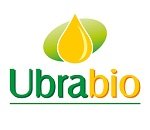PNPB
National Biodiesel Production and Use Program
Launched by the federal government, with the support of the productive sector that was born at that time, the PNPB implemented biodiesel in the Brazilian energy matrix, focusing on social, environmental and market aspects.
In January 2005, Provisional Measure 214/2004, which amended the Petroleum Law and provided for the establishment of deadlines for the addition of biodiesel to diesel oil in mandatory minimum percentages, became Law No. 11,097 / 2005 and then, the first Regulatory Framework for Biodiesel in Brazil. Complementary measures were also created to establish the taxation model with differentiation of PIS and COFINS, defining criteria by region and type of raw material.
The addition rule was regulated by Decree 5,448, still in 2005, and allowed the commercialization of biodiesel, in the proportion of 2% added to diesel (mixture B2).
In 2008, B2 blend became mandatory throughout the country and in later years this percentage increased. In 2010, the National Energy Policy Council (CNPE) raised the percentage to 5% and B5 became mandatory, anticipating in three years the target established by Law 11,097 of January 13, 2005.
After a long period of stagnation, and several actions by Ubrabio in defense of the evolution of the program, in 2014, the compulsory mixture passed to 6% (B6) and soon thereafter reached 7% (B7).
In November 2015, the Senate Special Development National Committee approved PLS 613/2015, which envisaged that the mandatory blend of renewable fuels into diesel would progressively reach 10% within three years. The Bill was unanimously approved by the senators and went to the Chamber of Deputies, where it processed on an emergency basis and also counted on the unanimous support of the deputies, causing it to be sanctioned in March 2016, as Law 13,263 / 2016 .
From that date, maximum deadlines were established for compulsory mixtures B8, B9 and B10. In addition, the new regulatory framework allows the country to reach B15, with only one National Council for Energy Policy (CNPE) decision.
In March 2017, the B8 began to be used throughout the national territory and, in March 2018, the B10 became effective. The objective of Ubrabio is that the obligatory addition of biodiesel will continue to advance, gradually, taking advantage of the productive potential of the country, generating wealth in all Brazilian regions and improving the quality of the air we breathe.
